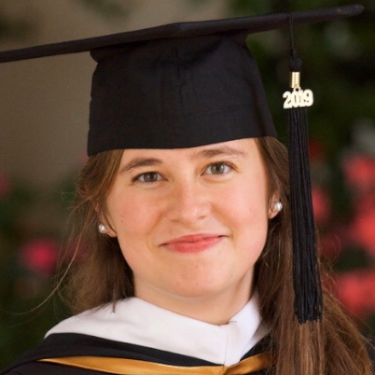- Home
-
About
 Fidelity & Excellence
Fidelity & ExcellenceThomas Aquinas College is unique among American colleges and universities, offering a faithfully Catholic education comprised entirely of the Great Books and classroom discussions.
-
A Liberating Education
 Truth Matters
Truth MattersTruth, and nothing less, sets men free; and because truth is both natural and supernatural, the College’s curriculum aims at both natural and divine wisdom.
-
A Catholic Life
 Under the Light of Faith
Under the Light of FaithThe intellectual tradition and moral teachings of the Catholic Church infuse the whole life of Thomas Aquinas College, illuminating the curriculum and the community alike.
-
Admission & Aid
 Is TAC Right for You?
Is TAC Right for You?Do you enjoy grappling with complex questions? Are you willing to engage in discussions about difficult concepts, with the truth as your ultimate goal?
-
Students & Parents
 Mind, Body & Spirit
Mind, Body & SpiritThere is always something to do at TAC — something worthwhile, something fulfilling, and something geared toward ever-greater spiritual and intellectual growth.
-
Alumni & Careers
 What Can You Do with a Liberal Education?
What Can You Do with a Liberal Education?Nothing speaks more to the versatility of the College’s academic program than the good that our alumni are doing throughout the Church and the world.
- Search
- Giving
Recent Graduate Brings “Mariological Twist” to Conference

Among the 50 presenters at the Sacra Doctrina Project’s 2022 Conference at Thomas Aquinas College, New England, was an alumna of the California campus, Mary Catherine Froula (’19). A graduate student of theology at Ave Maria University (AMU), Miss Froula offered reflections on the Blessed Mother’s role in the Redemption. “The conference was a truly delightful meeting of the minds and gathering of new and old friends,” she recalls.
It was her time at the College, which offered the briefest glimpse of the most beautiful ideas, that inspired her to pursue graduate studies. “A lot of TAC graduates can relate to the overwhelming awareness that they have really just begun the intellectual life and the long journey to union with Wisdom,” she says. “I knew that for the rest of my life I had to pursue Truth in some capacity, whether in a formal academic setting or otherwise.”
For a while, it was otherwise. Miss Froula became one of the first resident directors at the New England campus when it opened in the fall of 2019. But while she never let her intellectual passions cool during this time, she found herself thinking of the academic life she had left behind. “Finding it rather tantalizing to be on the outskirts of academia without the full immersion,” she says, “I felt a longing to return to the classroom and engage in the life of intellectual discussions again.”
In early 2021 she began looking into graduate programs, which led her to apply to AMU. “I was initially drawn to the program because of its strong Thomistic character and its emphasis on sapiential unity,” she says. But when she was accepted on the Feast of Our Lady of Lourdes, she doubted it was a coincidence. “I chose Ave Maria because Mary herself led me there! A lot of other students at AMU have similar stories, and none of us regrets following that invitation from Our Lady.”
Our Lady has long been a focal point for Miss Froula’s intellectual life. In her Senior Thesis at the College, she addressed the queenship of Mary as the fulfillment of man’s natural power of governance. She has since carried that Marian fascination into her subsequent intellectual life. “Mary’s unique receptivity to grace gives us all a model for the seamless intersection of the natural with the supernatural, and ample material for deepening our understanding of the miraculous power of faith to perfect reason,” she says. Even now in graduate school, though she runs the full gamut of Scriptural, Patristic, and Thomistic theology, Miss Froula notes, “I also try to give my research a Mariological twist when I can.”
At the SDP Conference, she gave voice to one such Mariological twist in a paper entitled, “‘Every Tree is Known By Its Own Fruit’: The Role of Our Lady in Man’s Redemption.” “My paper was an expansion of a little tangent in my thesis at TAC,” she says. “In that tangent I briefly mentioned the distinct modes of causality in Christ and Mary regarding our redemption; writing this paper gave me a wonderful opportunity to dive deeper into that topic.”
Miss Froula was grateful to participate in the SDP Conference and to share her research with fellow pursuers of Wisdom. “Events like these,” she says, “serve as a vital reminder of what makes us truly human — the capacity to reason, learn, and delight in that learning as companions, anticipating our final end of contemplation and communion.”

